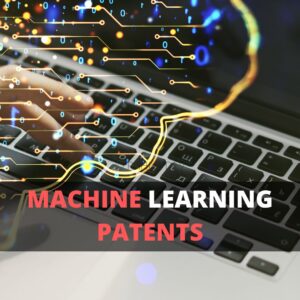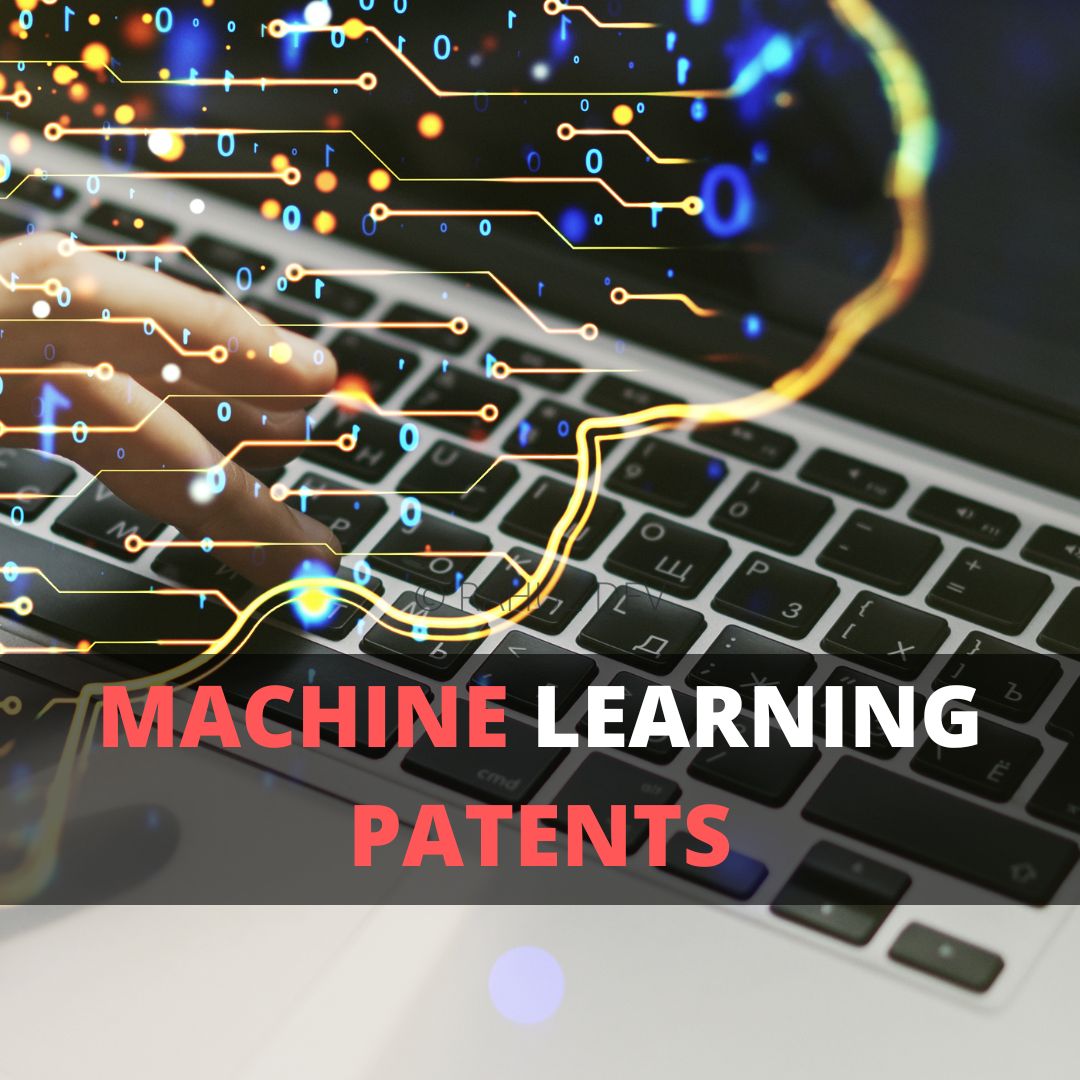Machine Learning Patents
Machine learning (ML) is one of the significant technological advancements of the last few decades. Apart from technology enterprises, approximately all innovative businesses have invested in ML. An approach for utilizing and inventing ML technology and getting a patent based on machine learning innovation is essential for entities of today’s era. Apart from IT entities, companies from other domains such as pharmacy, life science, chemistry, manufacturing, and more need ML to perform tech applications in their respective techniques such as drilling, drug discovery, etc. Owing to cross-over in technologies, patent attorneys must up-skill themselves to ensure they can advise their clients as per the dynamic nature of ML. With patent protection for machine learning innovations in hand, companies can successfully utilize any types of machine learning innovations that could improve investments in this dynamic sector.

What is the meaning of machine learning (ML)?
The ‘design and study of intelligent agents’ is famously known as artificial intelligence (AI). Here, an intelligent agent is a system that perceives its environment and initiates action accordingly that maximizes its chance of succeeding. ML is AI’s sub-field. When a digital computer is programmed to behave in a manner, as animals and human beings do, it involves the process of learning. Such a process is defined as machine learning. Processes such as statistics techniques provide computer systems with the ability to learn and assist machine learning. It is about building a mathematical model from an input data training set and then applying that model to a test data set to provide an output or prediction.
Importance of Machine Learning Patents
Machine learning has been instrumental in assisting companies with every operation, from increasing the conversion rate of ads to detecting any form of cancer. By offering numerous opportunities in all job-creating and professional sectors. The opportunity provided by machine learning has exploded. Researchers have estimated that the global market for machine learning will reach $8.8 billion. Machine-learning covers algorithms that utilize statistics to find and apply patterns in digitally stored data to improve experiences—such data can be words, numbers, images, etc. ML algorithms are of three types: supervised, unsupervised, and reinforcement learning.
ML provides companies with a view of trends in business operations, product development and customer behaviour patterns. Leading tech companies of today’s times like Uber, Facebook, Google, and more have implemented machine learning as an integral part of their operations. For example, machine learning (ML) powers the news feed of Facebook along with personalizing accounts of each member. Here, the machine learning engine attempts to reinforce known patterns in the online behaviour of the user. The feed keeps adjusting itself accordingly as per the change in members’ usage patterns. Apart from that, machine learning (ML) is playing a key role in business intelligence, customer relationship management, self-driving cars, human resource informatics systems, virtual assistants and more.
Patent Protection for ML Innovations
Many companies have started investing in understanding the limitations and requirements of ML-related software patents. Several innovators of machine learning technologies find it challenging to secure patents for such innovations. Without patent protection, innovators are unable to commercialize their inventions. Many countries with patent laws must amend this regulation and include guidelines about how patents regarding machine learning technologies must be assessed. For example, as per the European Patent Office (EPO), although algorithms are assessed as “abstract” and “computational in nature, once they are applied to a technical problem, they may become eligible for patent protection. Hence, this approach outlined in the guidelines is similar to that currently utilized to assess the patentability of inventions that are implemented by computers.
Patentability of Machine Learning Innovations
To make patent law adjustments, regulators must consider how to apply legal challenges to maximize machine learning’s ethical and social benefits. They should consider reducing the machine learning inventions’ patentability standards in areas that are more important from a social angle, such as healthcare, education, law, the environment, and more, to balance innovation with ethical mitigation. Regulators must ensure that patent laws achieve optimal balance regarding different opposing goals. Once patent rights are granted to innovations entirely generated by machine learning, it should be listed according to the constitutional rationale for patent protection to treat computer innovations as patentable and recognize ML as an innovator. ML should also be recognized as a person or legal entity and amended in the prevalent patent laws.
People must be encouraged to pursue ideas that might appear authentic and beneficial for society. The role of machine learning inventors should be legally bound, and the legal area should be broadened to cover the latest computer innovations. To be eligible for the machine learning patent protection, the regulators should define how to mention the technical purpose of the invention and define if machine learning content can become a state of art. The patent laws should clarify guidelines concerning the patenting of inventions related to ML. The solutions to many problems provided by ML have found relevance in patenting. Aided by ML applications, patent applications can be relevant for the invention of computer-related inventions.
Machine Learning Patent Landscape
While patenting machine learning inventions, the focus should be on requirements regarding how desired results are achieved and specific mathematical equations within claim language should be recited with caution. The patent laws of a country should define invention clearly how purpose should be defined, if sub-processes can be carried out in a distributed manner and potentially across the border if detailed aspects of an algorithm should be mentioned or not, would it be possible to detect the use of the invention by the third party while drafting their filing strategies, how the value of patents for machine learning has to be questioned, and the amount of hardware that must be described or claimed in an application.
In addition to the crucial points stated here relating to machine learning patents, the future business models based on innovation may regularly need assistance for Patent Searching. The results of a patent search report can assist in determining if Patent Drafting is the next step for International Patent Filing along with USPTO Patent Filing. In case of blockchain based business models, utility token Legal Opinion Letters may also be needed, along with a set of applicable contracts and agreements.
Our team of advanced patent attorneys assists clients with patent searches, drafting patent applications, and patent (intellectual property) agreements, including licensing and non-disclosure agreements.
Advocate Rahul Dev is a Patent Attorney & International Business Lawyer practicing Technology, Intellectual Property & Corporate Laws. He is reachable at rd (at) patentbusinesslawyer (dot) com & @rdpatentlawyer on Twitter.
Quoted in and contributed to 50+ national & international publications (Bloomberg, FirstPost, SwissInfo, Outlook Money, Yahoo News, Times of India, Economic Times, Business Standard, Quartz, Global Legal Post, International Bar Association, LawAsia, BioSpectrum Asia, Digital News Asia, e27, Leaders Speak, Entrepreneur India, VCCircle, AutoTech).
Regularly invited to speak at international & national platforms (conferences, TV channels, seminars, corporate trainings, government workshops) on technology, patents, business strategy, legal developments, leadership & management.
Working closely with patent attorneys along with international law firms with significant experience with lawyers in Asia Pacific providing services to clients in US and Europe. Flagship services include international patent and trademark filings, patent services in India and global patent consulting services.
Global Blockchain Lawyers (www.GlobalBlockchainLawyers.com) is a digital platform to discuss legal issues, latest technology and legal developments, and applicable laws in the dynamic field of Digital Currency, Blockchain, Bitcoin, Cryptocurrency and raising capital through the sale of tokens or coins (ICO or Initial Coin Offerings).
Blockchain ecosystem in India is evolving at a rapid pace and a proactive legal approach is required by blockchain lawyers in India to understand the complex nature of applicable laws and regulations.

